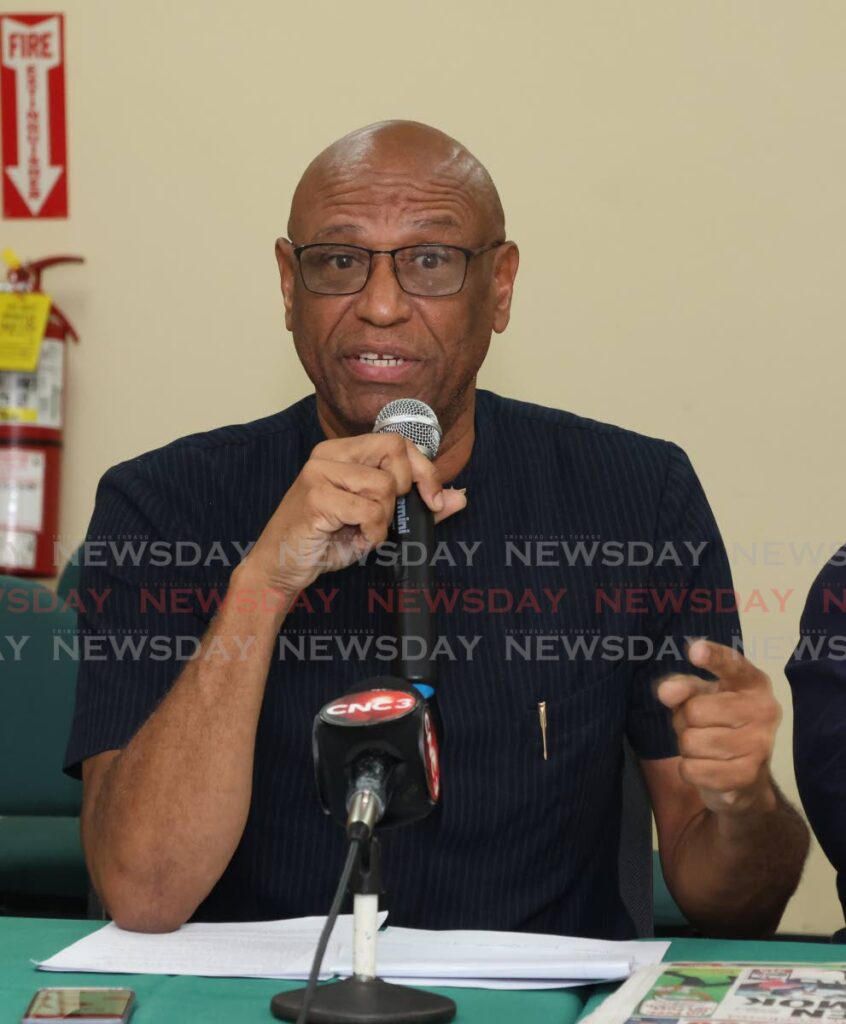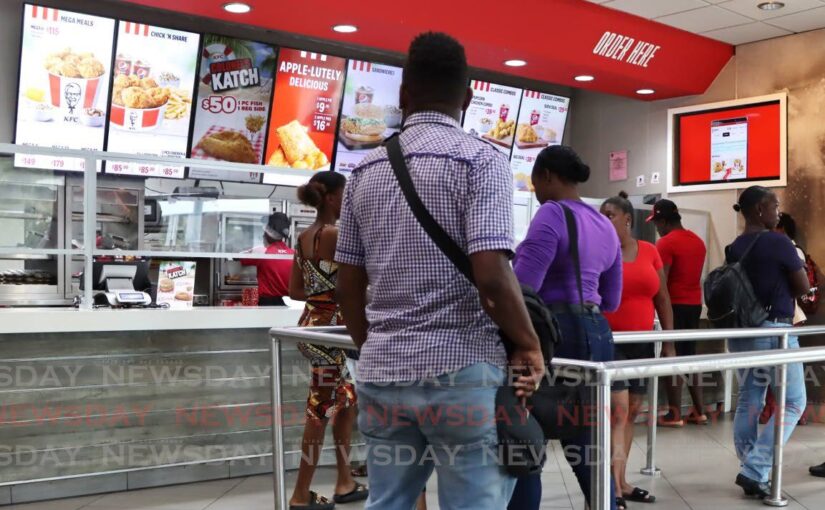

Chief Personnel Officer Commander Dr Daryl Dindial presides over a virtual meeting with trade unions to start discussions on wage negotiations at the Personnel Department's office, Alexandra Street, St Clair on October 24. - Photo courtesy CPO's office
PUBLIC sector unions are treating with scepticism a special meeting the Chief Personnel Officer (CPO) Dr Daryl Dindial called on October 24 as a prerequisite to engaging in wage negotiations for the period January 2020-December 2022.
In an immediate response to a release from the CPO about the meeting, president of the Public Services Association (PSA) Leroy Baptiste said this was nothing more “than a stunt by the CPO, aimed at supporting the political agenda of the People’s National Movement (PNM) administration.”
Leroy Baptiste, PSA president -
Baptiste accused both the government and the CPO of leveraging the desperation of workers – who have been waiting on proper salary increases since 2013 – before Christmas when there is a need to spend.
“This is gamesmanship, not negotiations and the CPO is assisting the PNM to roll back and take away all the terms and conditions that have been hard won over the years, such as cost of living allowances (COLA).”
>
Fire Service Association president Keone Guy also expressed scepticism. But said his union is prepared to negotiate in good faith, although he sees a pattern emerging from the last negotiation for the January 2014 to December 2019 period when they were forced to accept four per cent.
The PSA and the Contractors and General Workers Trade Union (CGWTU) have yet to accept the four per cent.
The October 24 virtual meeting follows the directive from Finance Minister Colm Imbert in his September 30 budget presentation for the CPO to start wage negotiations for the stated period with a five per cent offer.
President of the Fire Service Association (2nd Division) Keone Guy. -
The unions had initially rejected what it termed negotiations by public decree, which they said was seeking to circumvent established methods of bilateral negotiations, considering Imbert already painted a picture of challenging financial circumstances.
During his budget presentation, Imbert said, “This increase (five per cent) is estimated to cost the government an additional $475 million per year in recurrent expenditure, with back pay up to the end of 2024 estimated at over $1 billion. It will be difficult to find the money to make these payments, but we think it is only fair and just.”
An October 24 release from the office of the CPO stated that as a prerequisite to engaging in wage negotiations, the CPO extended invitations to eleven unions and associations as well as the TT Defence Force (TTDF) for the special meeting.
Neither the TT Police Service Social and Welfare Association (TTPSSWA) nor the PSA attended the meeting, which was facilitated by the Personnel Department and the Ministry of Finance.
Its aim, the CPO said, was to highlight the current economic landscape and provide a comprehensive overview of the state’s financial status.
>
Baptiste took issue with this reason for the meeting, saying he was subjected to over five hours of Imbert speaking on the state of the economy in his budget presentation and needed no more clarification.
He said he was not opposed to a one-on-one meeting with the CPO but against a collective meeting with ten other unions.
The release added that the session outlined key economic indicators, including inflation rates, revenue, GDP-to-debt ratio and forecasting the economy in 2025/2026, all of which “are vital for understanding the fiscal environment in which public service wage negotiations will stand on.
“Commander Dindial further emphasised the importance of the meeting, highlighting that a thorough grasp of the economic context is critical for the associations/unions and the government in approaching negotiations with clarity and mutual understanding.”
It stated that the invitation to the 11 not only reflected a commitment to transparency by the state but also aimed to foster collaborative dialogue and enable all parties to voice their concerns regarding terms and conditions in light of TT’s economic realities as well as seek the best outcome for their members.
Dindial clarified that the TTPSSWA requested another date as they had a prior commitment.
In the case of the PSA, he said the PSA wrote indicating their unavailability, “as well as stated, 'Any discussions on the economy intended for the purpose of negotiations should take place around a negotiation table during bilateral talks confidentially between the association and the CPO.'
“The CPO notes their position is unfortunate since the Ministry of Finance professionals who are trained economists would have provided the PSA with context on the state of the economy and it does not limit future discussions with the CPO around the table.”
Baptiste told Newsday, “That letter was written in a private capacity to the CPO. That was not a public letter. That is another indication that he is engaging in politics. If he wants to engage in politics, we will play politics too.”
>
The Oilfield Workers Trade Union (OWTU) said it was not invited to that meeting, although it represents workers in the state sector, including T&TEC.
On the morning of October 24, electricity workers across the country engaged in protest action outside their offices in the East, West, North, South and Tobago to highlight health and safety issues.
One of the critical issues the workers highlighted was the absence of a salary increase since 2014.
President general of the OWTU Ancel Roget, who joined the San Fernando protest, said electricity workers were considered essential workers but were risking life and limb daily to ensure a reliable supply of electricity to the country.
Ancel Roget, OWTU president general -
He said he did not know how long the workers would continue to provide an efficient service but striking was not on their agenda.
He warned, however, that the OSHA gives workers the right to remove themselves from a dangerous environment where there were threats to life and limb as exists at T&TEC at present.





